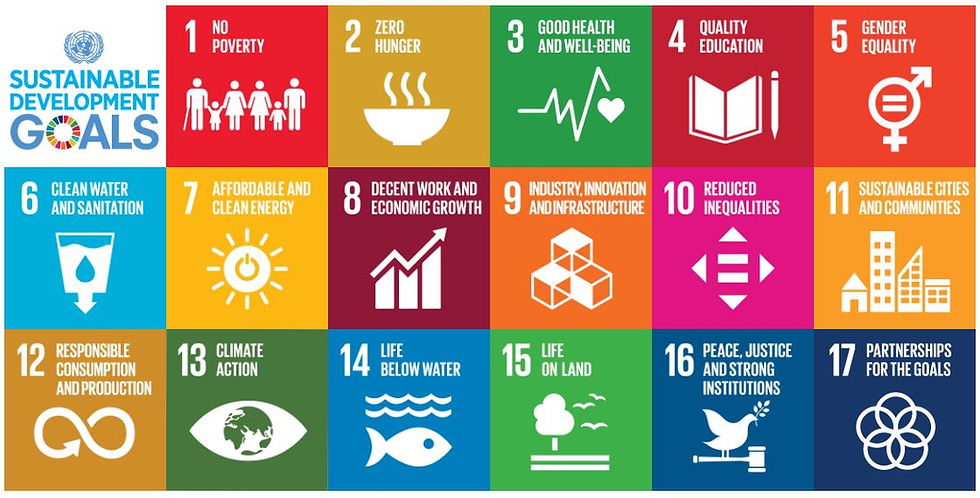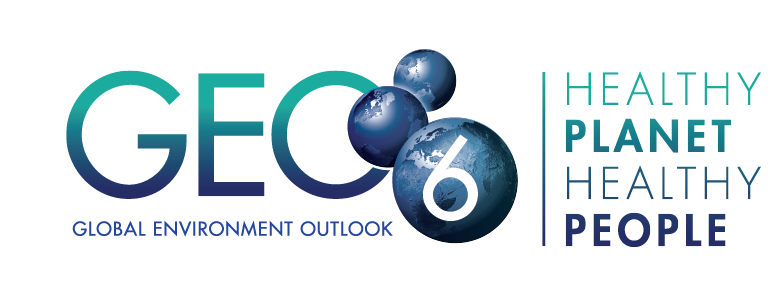Sustainability on the global agenda
- Ale Varela

- 2 sept 2019
- 3 Min. de lectura
Actualizado: 4 mar 2020
Maybe you feel like I do when you're trying to learn something about a topic on the internet and you end up feeling more confused by the end of your search extravaganza.
I've been in the environmental arena for over 10 years and I still feel like that from time to time when I'm trying to do some research on a new subject or trend even when it's about ecology, sustainability, the environment or something relating to my "area of expertise".
One way I stop myself from feeling overwhelmed is setting a starting point. What do you think if we apply this tip right now?
If we want to review the global environmental agenda for sustainable development we have to look at the United Nations (UN).

Why the UN?
The UN is responsible for setting the world's environmental agenda and it arises from the coalition of several countries with the intention to seek peace, prosperity and dignity for every citizen.
What's the UN doing to accomplish this?
In 2015 the UN celebrated the Sustainable Development Summit in New York City. This event gathered over 150 world leaders to start the conversation between the international community and national governments to promote shared prosperity and well-being for all.
From this summit the world received the Transforming our world: the 2030 Agenda for Sustainable Development. A commitment from 193 countries to follow a plan of action by setting 17 Sustainable Development Goals.

The SDGs have become the global framework for sustainability, providing institutions, governments and citizens clear time-bound targets to achieve for Prosperity, People, Planet, Peace and Partnership.
They are integrated and balance the three dimensions of sustainable development: the economic, social and environmental. The Goals and targets from each subject are meant to stimulate action over the next fifteen years in areas of critical importance for humanity and the planet. Topics such as peace and social justice, gender equality, economic growth and responsible consumption. These goals are meant to lead our governments to more environmentally friendly politics, to show the importance of environmental action for a better world.
In order to achieve this, the UN gathered a community of scientists, peer reviewers, institutions and partners for evaluating the current state of the environment, modelling future scenarios and analyze the effectiveness of policies. The result of this study is the Global Environment Outlook, which last issue was released in early 2019.

Some of the main challenges presented in the GEO 6 are listed below:
A healthy environment is both a prerequisite and a foundation for economic prosperity, human health and well-being. It addresses the main challenge of the 2030 Agenda for Sustainable Development: that no one should be left behind, and that all should live healthy, fulfilling lives for the full benefit of all, for both present and future generations.
Unsustainable production and consumption patterns and trends and inequality, when combined with increases in the use of resources that are driven by population growth, put at risk the healthy planet needed to attain sustainable development.
The key features of effective environmental policies for sustainable development include integrated objectives, science based targets, economic instruments, regulations and robust international cooperation.
Approximately 1.4 million people die annually from preventable diseases, such as diarrhea and intestinal parasites, that are associated with pathogen-polluted drinking water and inadequate sanitation.
Biodiversity loss from land-use change, habitat fragmentation, over exploitation and illegal wildlife trade, invasive species, pollution and climate change is driving a mass extinction of species, including critical ecosystem service providers, such as pollinators. That mass extinction compromises Earth’s ecological integrity and its capacity to meet human needs.
The harmful impact of inappropriate use of pesticides, heavy metals, plastics and other substances are of significant concern, as such compounds appear in alarmingly high levels in our food supply.
Further developments are needed in environmental and natural resource accounting to ensure that environmental costs are internalized into economic decision-making for sustainability.
If we wish to comprehend the gravity of the current environmental status we have to look deeper at the GEO 6 report. What I present in this post is merely an introduction to a very complex reality of global consequences.
From active participation on events for environmental issues such as the Earth Summit, the Paris Agreement and others, countries will create and hopefully implement legislation and mechanisms for the achievement of the SDGs.
Implications of inaction are catastrophic. Let us all do our part and contribute to the solutions needed. We can all contribute, at a larger scale from our companies, industries, schools, institutions, but most importantly from our homes. Recognize the value of what you pass on to the future generations and be an agent of positive change from your home.










Comentarios